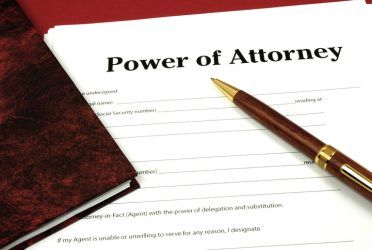What is a power of attorney?

What is a power of attorney?
And do you need one?
If you are elderly, or if you have an elderly loved one, you need a power of attorney.
In today’s post, we will go over what it is, how it comes in handy and how to create one.
Let’s get into it.
What is a power of attorney?
A power of attorney is a document that allows you to appoint a person or an organization to handle your affairs on your behalf should you become unavailable or unable to.
Some scenarios that would require you to have this document include:
- Falling sick and becoming unconscious and so you’re no longer able to make your own decisions.
- Traveling outside the country and then you have an important decision that needs to be taken on your behalf immediately.
- You suffer a mental health condition that makes you incapable of such decisions. Examples include dementia or Alzheimer’s Disease.
And these are just three examples. Essentially, any situation that would make you unable to make your own decisions requires this legal document.
Why you need one
You need one because it is best if the decision taken concerning you, comes directly from you.
When you have this as a legal document, it will reduce uncertainty on what you want.
Many family feuds have come about as a result of having no appointed people to take crucial decisions.
Sometimes, these issues are followed up in court and costs everyone involved precious time and money.
How to create a power of attorney
Like I mentioned above, a power of attorney is a legal document.
Thus, it is in your best interest to consult with a lawyer when you decide to create one.
There are different types of the document.
For instance, you could have a general power of attorney. With this type, you give powers to an individual or organization to take decisions that include:
- the sale of your property
- managing your financial affairs
- buying health insurance
- employing professionals
A healthcare power of attorney, will be able to take medical decisions on your behalf. Such a person or organization can be included in your estate plan.
With a special power of attorney, you will afford the person you choose with the exact decision they are allowed to take for you. For instance, you might designate one of your children as the person who decides what happens to a piece of real estate while another one will be responsible for something else.
I highly recommend that you talk to a lawyer about this as well as creating a complete estate plan.
It comes down to trust
You should never let anyone force you into making them a power of attorney.
If you don’t trust the person or organization, you are not compelled to give them this responsibility.
And because you can do this with a lawyer at any point in time, you can do it privately before you ever disclose whom you’ve appointed.
Whichever way you choose to go, it is helpful to have a power of attorney for those seasons of life when you are unable to take crucial decisions that have lasting consequences.
Did you find this post helpful?
Share it with someone who might be looking for answers to these questions.
